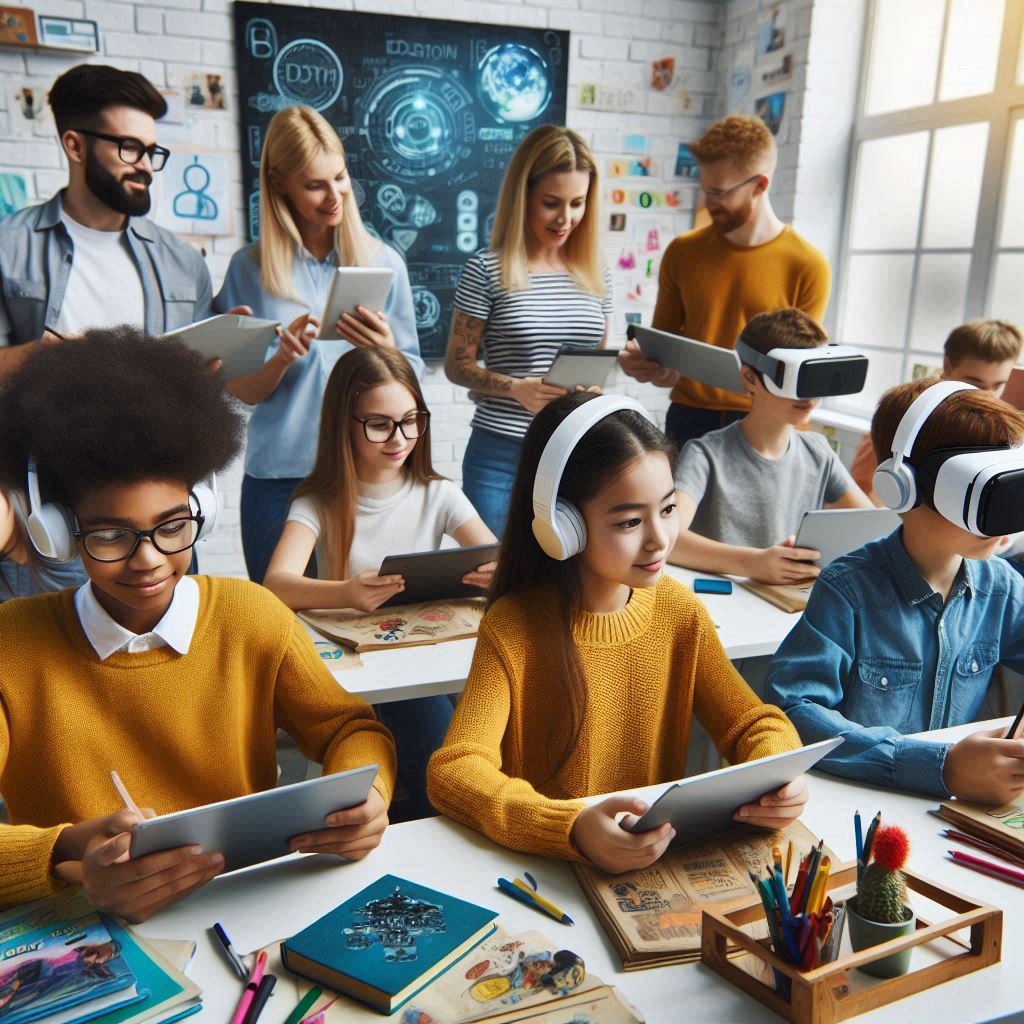Education Technology Tools: Enhancing Learning in the Digital Age
In recent years, the integration of education technology (EdTech) tools has revolutionized the way students learn and educators teach. This article delves into the significance of education technology tools, explores popular innovations in the field, and discusses their impact on modern education.
Introduction to Education Technology Tools
Education technology tools encompass a wide range of digital resources and platforms designed to facilitate teaching, learning, and student engagement. These tools leverage advancements in technology to create interactive and personalized learning experiences, transforming traditional classrooms into dynamic hubs of innovation.
Importance of Education Technology Tools
1. Enhancing Teaching Effectiveness
Education technology tools empower educators to create engaging lesson plans, deliver multimedia content, and assess student progress effectively. Tools like learning management systems (LMS), interactive whiteboards, and educational apps enable personalized instruction tailored to individual learning styles and pace.
2. Fostering Student Engagement
Interactive simulations, gamified learning platforms, and virtual reality (VR) applications captivate students’ attention and encourage active participation in the learning process. These tools promote collaboration, critical thinking, and problem-solving skills essential for academic success and future career readiness.
3. Accessibility and Inclusivity
Education technology tools bridge accessibility gaps by accommodating diverse learning needs and preferences. Features such as closed captioning, text-to-speech functionalities, and adaptive learning algorithms ensure equitable access to educational content for students with disabilities or language barriers.
Innovations in Education Technology Tools
1. Adaptive Learning Platforms
Adaptive learning platforms utilize AI algorithms to personalize learning pathways based on students’ performance and comprehension levels. These platforms adjust content delivery and assessments in real-time, optimizing learning outcomes and reducing learning gaps.
2. Virtual Classrooms and Collaboration Tools
Virtual classrooms and collaboration tools enable synchronous and asynchronous interactions among students and instructors regardless of geographical locations. Features like video conferencing, chat forums, and shared document editing enhance communication and teamwork in online and blended learning environments.
3. Artificial Intelligence (AI) in Education
AI-powered tools analyze data insights to predict learning patterns, recommend personalized study resources, and provide real-time feedback to students and educators. AI chatbots also offer immediate assistance and support, improving overall learning efficiency and engagement.
Implementing Education Technology Tools Effectively
1. Professional Development for Educators
Training and ongoing professional development programs equip educators with the knowledge and skills to integrate education technology tools effectively into their teaching practices. Hands-on workshops, online courses, and peer collaboration foster confidence and innovation in using EdTech tools.
2. Data Privacy and Security Measures
Protecting student data and ensuring privacy compliance are paramount when implementing education technology tools. Institutions must adhere to stringent data protection regulations and implement robust cybersecurity measures to safeguard sensitive information.
3. Evaluation and Continuous Improvement
Regular assessment and feedback from stakeholders—students, educators, and administrators—inform the selection and refinement of education technology tools. Monitoring usage analytics, conducting surveys, and soliciting user feedback guide strategic decisions to enhance tool functionality and user experience.
Conclusion: Embracing the Future of Learning
Education technology tools represent a transformative force in modern education, empowering educators and students with innovative resources to optimize learning experiences. As technology continues to evolve, the integration of EdTech tools will play a pivotal role in shaping the future of education, fostering digital literacy, and preparing learners for success in a rapidly changing global landscape.
In summary, education technology tools are not just enhancing educational practices but also revolutionizing the way knowledge is acquired, shared, and applied in the digital age.
